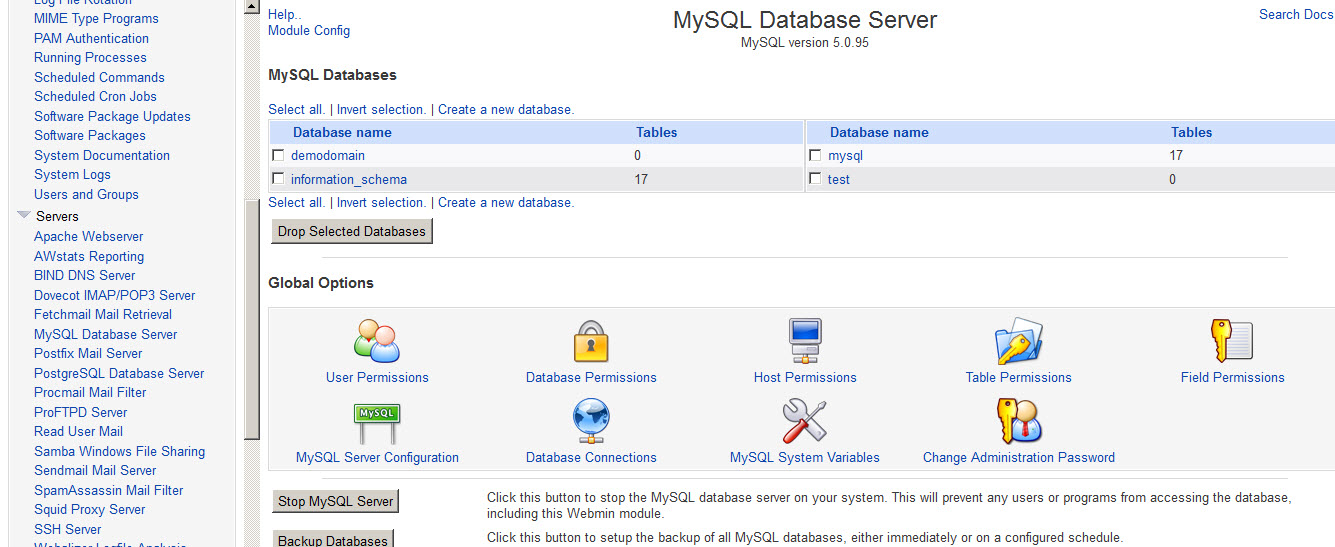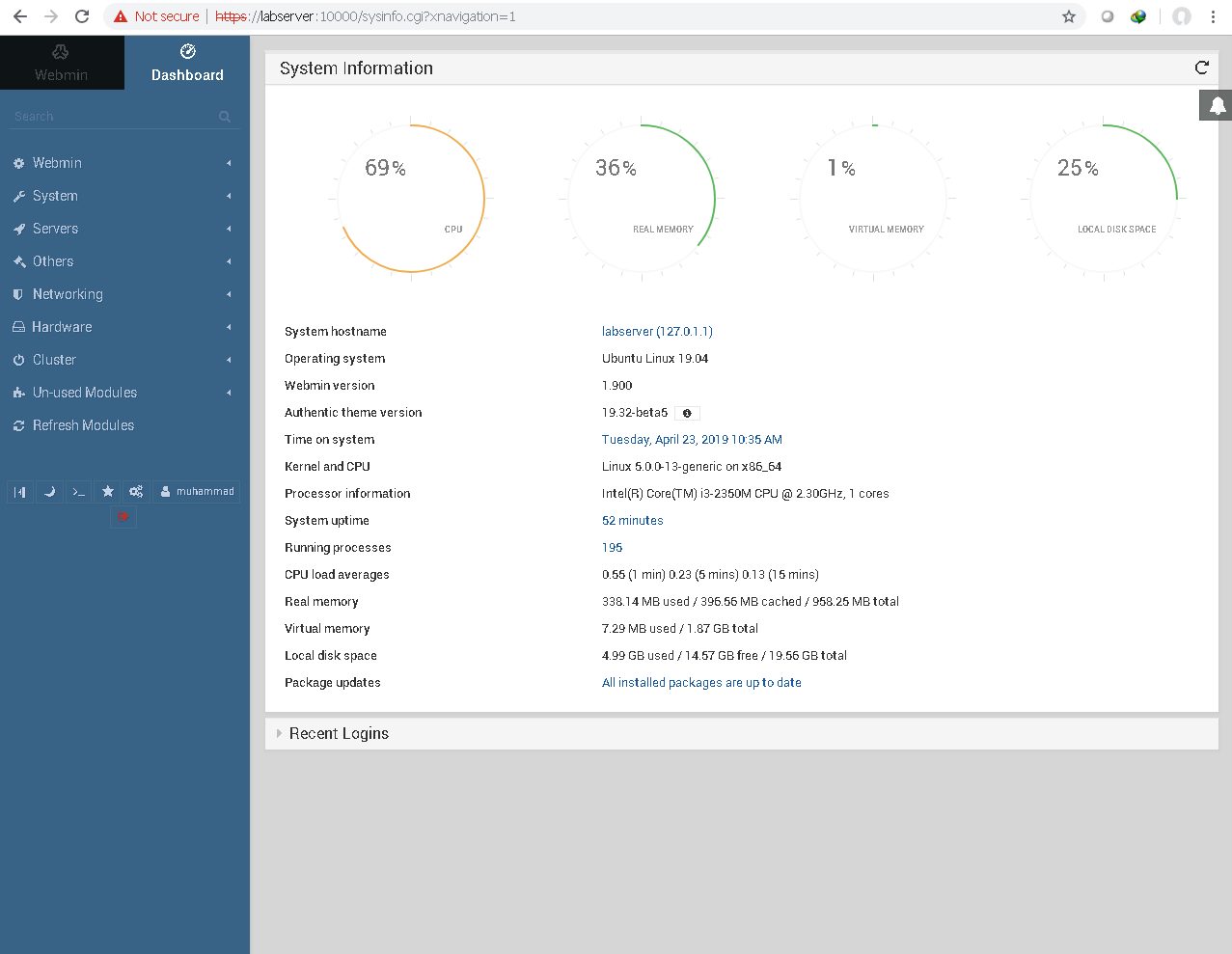

#WEBMIN FOR WINDOWS HOW TO#
You can stick with the default, or if you need to go with a non-standard port, here’s how to change it: Regardless of how you use it, you will want to define the ports used by the proxy first. Your plan for using the proxy will dictate how you configure it.

Search for the line #cache_dir ufs /var/spool/squid3 100 16 256 (around line 2245).If you continue seeing this error, here’s what you need to do: Once the system has been initialized, you will be prompted with the Return To Squid Index link. At this point you will see the “Stopping Squid” warning. This must be done before Squid can be run.” In order to initialize this, click the Initialize Cache button (with either an existing user, or you can create a new user/group “proxy”). The first thing you will see is the error “Your Squid cache directory /var/spool/squid3 has not been initialized. Click the Squid Proxy Server, and you’re ready to start setting it up.įigure B Click the image to enlarge. You should now see a listing for Squid Proxy Server ( Figure B). When the installation completes, refresh the view of your Webmin portal and then expand the Servers section. In this new window ( Figure A) click the Click Here link to have Webmin run the install. You can watch the progress of the installation fly by in the same screen.Expand Unused Modules and scroll down until you see the entry for Squid.Scroll down until you see in the left navigation, the Unused Modules section.Log in to Webmin as your administrative user.
#WEBMIN FOR WINDOWS INSTALL#
After you log in to Webmin as an administrator, you can have Webmin install Squid and then enable the module for you. In order to be able to enable the Squid module, Squid needs to be installed fortunately, Webmin is smart enough to handle this task for you. Once you have Webmin up and running, you are very close to having Squid installed.
#WEBMIN FOR WINDOWS WINDOWS#
Because Squid is designed to run on UNIX-like systems (there was a Windows port for a brief period, but it was abandoned), you need to have Webmin running on a UNIX-based system. I will demonstrate this on a Ubuntu 12.10 platform and do everything through the web-based GUI (no command-line necessary). I will walk you through the steps of setting up a Squid proxy server through the Webmin tool. With the Webmin administration portal, you can easily set up a Squid proxy server and manage that proxy with the user friendly web-based administration tool. Many smaller companies assume they don’t have the time or the money to put into setting up a proxy server. Jack Wallen demonstrates how to set up a Squid proxy server through the web-based Webmin administration tool.Ī proxy server can prevent employees from visiting certain sites, help reduce the load on your network by caching pages for clients, and make use of SSL to secure connections between clients and servers. Configure a Squid proxy server through Webmin


 0 kommentar(er)
0 kommentar(er)
